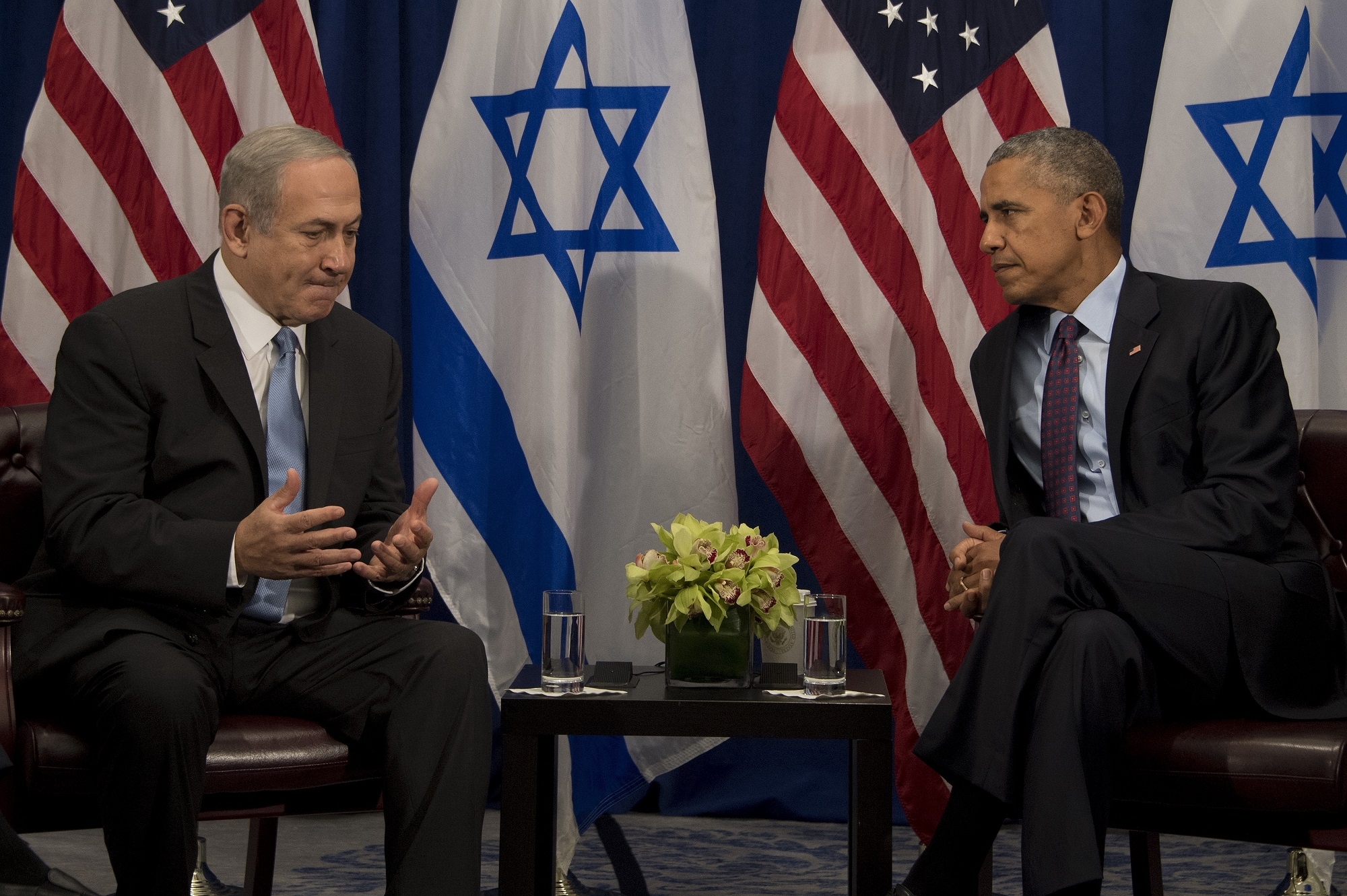Obama says disagreements with Israel carried 'domestic political cost': Report

In his upcoming memoir, A Promised Land, former US president Barack Obama appears to acknowledge that Israel's supporters in the United States use accusations of antisemitism to stifle criticism of the Israeli government's policies against Palestinians.
According to excerpts published by Jewish Insider, Obama wrote that American politicians who "criticized Israel policy too loudly risked being tagged as 'anti-Israel' (and possibly anti-Semitic) and [were] confronted with a well-funded opponent in the next election".
The book, part of a two-volume set in which Obama reflects on his eight years in the White House, is scheduled to come out next week.
In the memoir, the former US president describes the challenges in his relationship with Israeli Prime Minister Benjamin Netanyahu.
Jewish Insider reported that Obama accused the Israeli leader of having a "vision of himself as the chief defender of the Jewish people" that "allowed him to justify almost anything that would keep him in power".
Obama also hits out at the powerful pro-Israel lobby, the American Israel Public Affairs Committee (AIPAC), saying that the group moved to the right ideologically to mirror Netanyahu's government and defended Israel even when its actions "were contrary to US policy".
The former president also revealed that he faced pushback from his own party when criticising Israel settlement activity.
According to Jewish Insider, Obama wrote that while congressional Republicans simply did not care about the rights of Palestinians, their Democratic counterparts were "worried" about angering AIPAC and losing its support.
Obama adds that pro-Israel pressure on his administration was "orchestrated" by Netanyahu to remind the US president that "normal policy differences with an Israeli prime minister exacted a domestic political cost".
Difficult relationship
During his two terms in the White House, Obama increased US military aid to Israel despite verbally condemning Netanyahu government policies, including settlement activity.
The former US president and the Israeli premier endured a challenging personal relationship. Their disagreements came to the forefront in 2015, when Netanyahu addressed a joint session of Congress and failed to coordinate with the White House, in breach of diplomatic protocols.
In Obama's final year in office, AIPAC spearheaded a campaign against the Iran nuclear deal that was negotiated by his administration.
The multilateral agreement saw Iran scale back its nuclear programme in exchange for the lifting of sanctions against its economy.
President-elect Joe Biden has vowed to return to the accord, which President Donald Trump abandoned in 2018.
Biden and his top advisers have also committed to continuing unconditional support to Israel and to keep disagreements with the Israeli government private.
In his last month in office, Obama opted against vetoing a UN Security Council Resolution that condemned Israeli settlements in the West Bank and East Jerusalem.
Aides to Biden, who served as Obama's vice president, say he will oppose moves to "single out" Israel at the UN.
Middle East Eye delivers independent and unrivalled coverage and analysis of the Middle East, North Africa and beyond. To learn more about republishing this content and the associated fees, please fill out this form. More about MEE can be found here.





